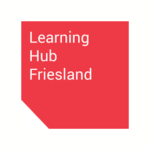In the 21st century, we are surrounded by complex and ill-structured issues such as combating global climate change, preventing the spread of coronavirus, animal testing for medical purposes, consumption of GMO foods, the establishment of nuclear power plants, and cloning. Such ambivalent issues are called socio-scientific issues.



Due to its controversial nature, individuals entering the decision-making process on these issues make decisions by thinking through many sources of evidence such as the media, family, other people, the discourses of scientific authorities, and personal justifications. Risk perceptions, misunderstandings, and short-cut bias(i.e. affect heuristic)used in this process inhibit effective decision-making.
For example, today many people are hanging back from the Covid-19 vaccination process due to disruptive factors such as misunderstanding, media manipulation, and risk perceptions. Governments and policymakers aim to make decisions on controversial global and local problems such as pandemics, global warming, consumption of GMO nutrients, and vaccine safety by fairly evaluating sources of evidence and questioning the reliability of multiple sources of evidence.
Objectives of our project:
Improving low-skilled adult learners’ performance, self-efficacy, and motivation of adult tutors and a demonstration of practice that will competently address socially sensitive and controversial social science-related issues.
Improving skills for using digital tools, and raising effectiveness to develop learners’ key competencies in the context of ALE. We want to empower multi-dimensional and cross-sectoral cooperation to unite per partners’ strengths, making up for their short comings and covering their multi-cultural needs, and creating harmony in the context of Adult Education.
 E - Seniors, France
E - Seniors, France
 Olemisen Balanssia RY, Finland
Olemisen Balanssia RY, Finland
 Bursa Uludag Universitesi, Turkey
Bursa Uludag Universitesi, Turkey
 Polygonal, Italy
Polygonal, Italy
 Centro Educacion Permanente CEHEL, Spain
Centro Educacion Permanente CEHEL, Spain
 Learning Hub Friesland, Netherlands
Learning Hub Friesland, Netherlands
 Erasmus
Erasmus